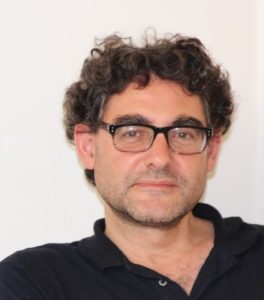Book review: Lessons from the Ottoman Empire
These days news from the Middle East seems always to be all bad.
The Arab world accounts for 36 per cent of global terrorist attacks, and 43 per cent of global deaths from terrorism. It supplies around 58 per cent of the world’s refugees.
These figures come from the United Nations Development Program latest Arab Human Development Report, released last month.
It is the sixth such report since 2002, and the first to appear since the 2011 Arab uprisings that have convulsed the region, and it again shows that while there has been some success with specific social and economic reforms, the upward trend in human development indicators has slowed.

Nicolas Pelham
Particularly bleak is the report’s analysis of the prospects of the region’s young people.
Education systems are struggling, student performance is poor and below average for the size of most countries GDPs; and young people find it increasingly difficult to find work with the youth unemployment rate at about 30 per cent – or double the global average.
With two thirds of some countries populations under thirty, this is nearing crisis point.
Few people have anything optimistic to say about the Middle East and many point to intransigent sectarianism as the front of all the troubles.
But veteran correspondent for The Economist Nicolas Pelham presents a slightly more optimistic view in his new book Holy Lands.
The book is a very readable collection of strikingly original reportage from across the region that is underpinned by a single idea.
Pelham argues that sectarianism is the key to understanding the Middle East’s current catastrophe and also a potential solution.
He says the notion of the sect has become an abused part of nationalist identity politics, with current leaders either trying to deny the region’s religious – and religiously tolerant – heritage, or using sect as a tool to legitimise their own rule.
The result has been territorial exclusionism, sudden new suspicions and hostilities, and more inward-looking and repressive governments. Pelham argues Islamic State represents the most extreme case, with its medievalist brutality towards not only non-Muslims but also toward Shia Muslims.
The book harks back to the rule of Ottoman Empire which controlled much of the Middle East between the 1500s and the end of the First World War.
The Ottomans were Sunni Turks who established an era of religious tolerance that was the opposite of the current atmosphere of hostility and divisiveness.
The Ottomans prided themselves on a liberal political and social outlook. Indeed, key political figures were Christian; European culture was embraced and a great deal of power was devolved to religious communities.
This was not however egalitarianism, Pelham says. Non-Muslims were a special, subservient class mostly, often paying a special taxes and sometimes lacking equality in law
They were the source of slaves and concubines but there was the opportunity be socially mobile.
“From the lowliest captive, a slave girl could rise to the most powerful person in the empire [as the mother of a Sultan]; an Albanian guttersnipe could become a grand vizier,” Pelham writes.
Pelham’s argument, in a nutshell, is that the region needs to recapture the sort of tolerance and communal inclusiveness that characterised the Ottoman Empire.
He provides examples of how some of this tolerance already exists, but is rarely reported on, citing a firebrand Hamas preacher who spouts vehement Islamist rhetoric yet also has a noteworthy tolerance towards other “People of the Book” (Jews and Christians).
He discusses the Shia holy city of Najaf, in southern Iraq, where around a quarter of marriages still cross sectarian lines.
Given Iraq’s recent history of civil conflict, this is extraordinary – as would be a broad and assiduous adoption by the region’s wielders of power of Ottoman principles of tolerance and secularism.
Holy Lands: Reviving Pluralism in the Middle East, by Nicolas Pelham, Columbia Global Reports.
Laurie Nowell
AMES Australia Senior Journalist












